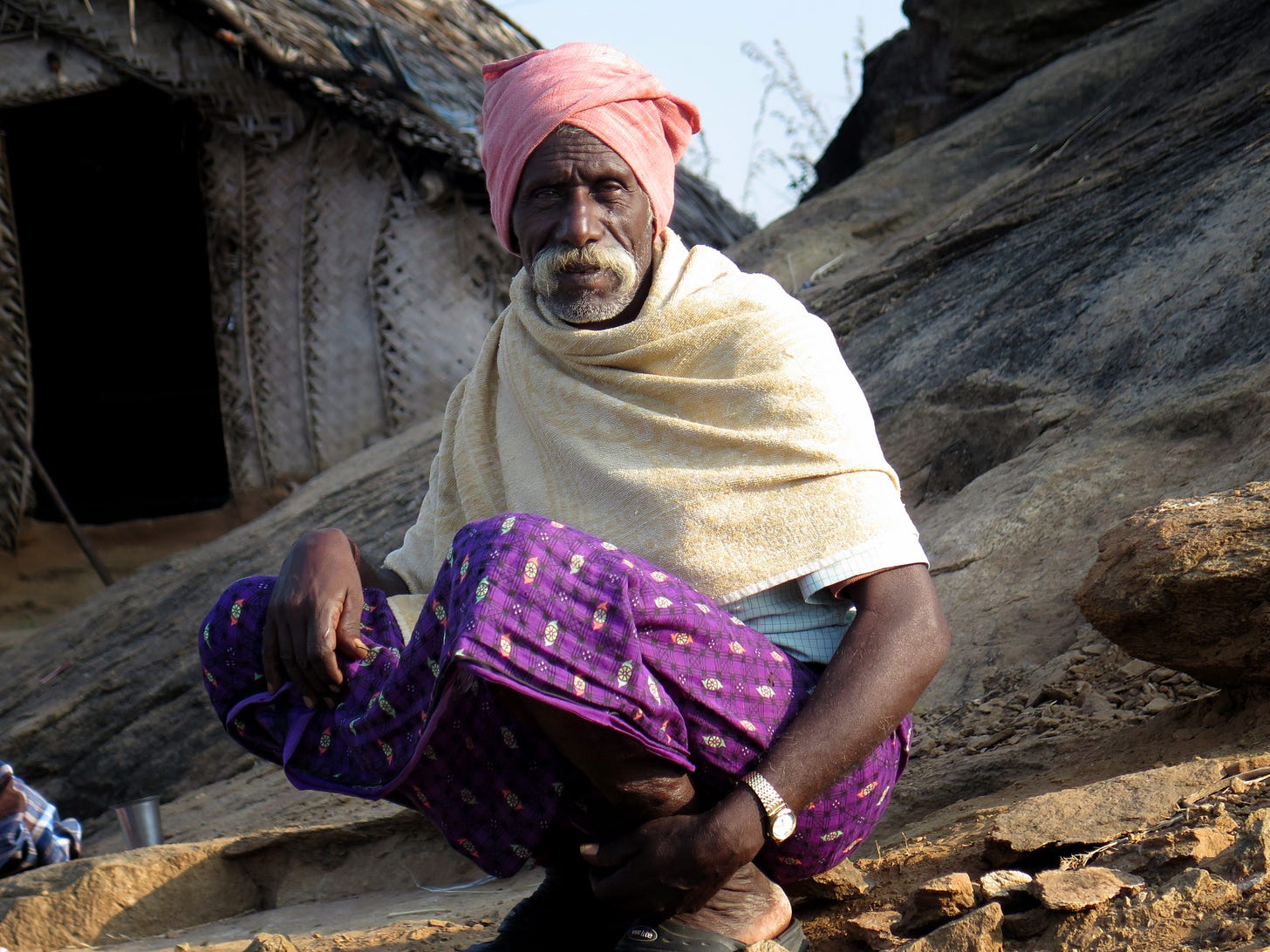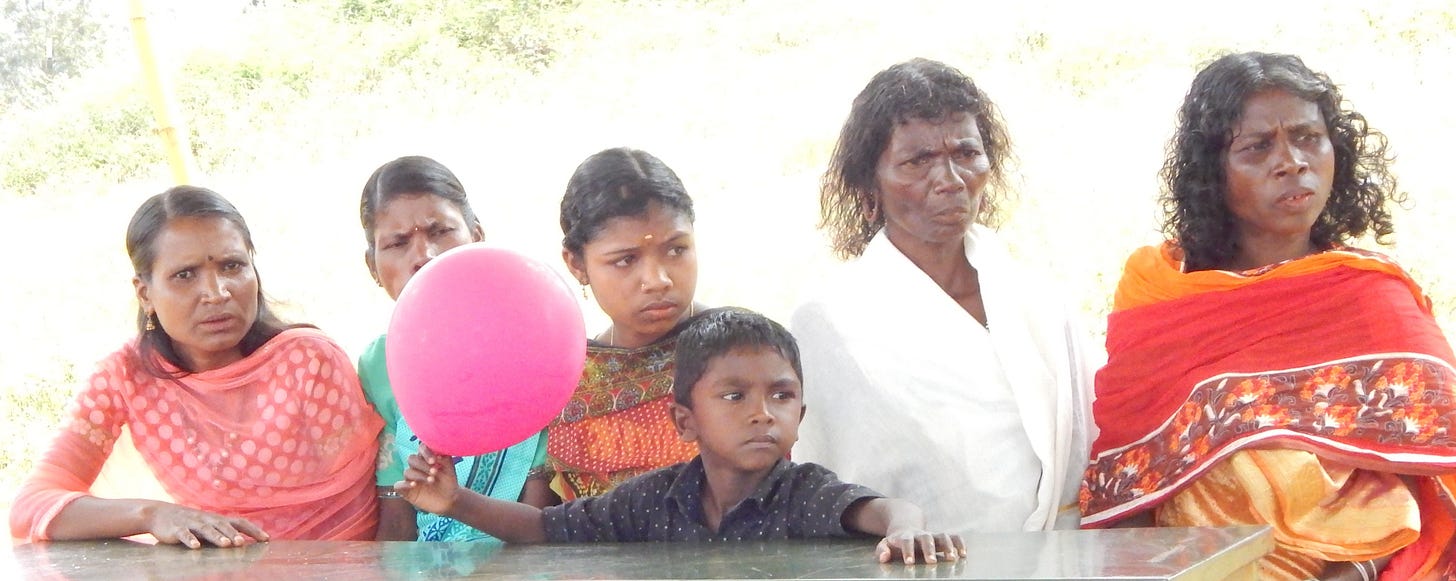The Palliar People's Plight
Older members of the vulnerable Palliar tribe remember that in their youth they subsisted on the forest and had little contact with outsiders. It is only in the last two generations that their semi-nomadic lifestyle has changed to living in settlements.
There are Palliar hamlets where people are outside the cash economy, without shelter, and with not a single child going to school. Many families live in a situation akin to bonded labour. They take loans from landowners and are then obliged to work at half the usual wage rates.
About half the families collect forest produce for sale. These products command a good price, but they are forced to sell them for much less than their true worth to middlemen, a practice to which forest officials turn a blind eye.
Two-thirds of the families lack the documents and registration needed to receive the many government benefits available to tribal people. These include decent housing, allocation of land, village services such as roads, electricity, clean water, toilets, lighting and sanitation, school scholarships, and village health visitors.
Most of the Palliars are landless. Many do not even own the plot where they live and eviction and migration are common. Many hamlets lack clean water supply, sanitation, road connection, housing, and electricity.
Officials dealing with social welfare and child protection have little idea of the exceptionally deprived status of Palliar families. Even when the authorities engage with tribal communities they often side with landowners, traders and even some NGOs who contribute to the denial of Palliars’ rights and entitlements. For instance, forest officials deny legal rights in the forest and the right to sell forest produce. Funds earmarked for tribal people are diverted to other uses, and officials are often indifferent or put off by genuine difficulties in working with isolated communities.
Our partners works with Palliar villages by setting up women’s self help groups. The group members attend training sessions with our partners to learn about rights, applying for government benefits, legal advice and more. The objective is to train and support the people concerned to go to the authorities themselves. It is much more effective to enable, motivate and empower the people because they will create a lasting change within their communities.
To donate for women's empowerment in India please click on https://goto.gg/61393






